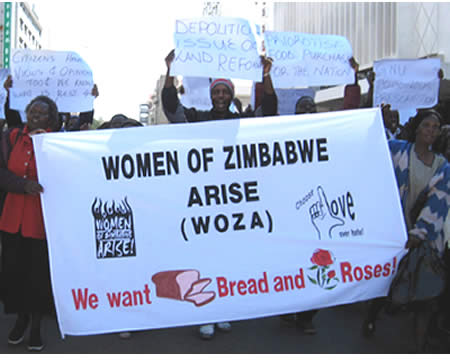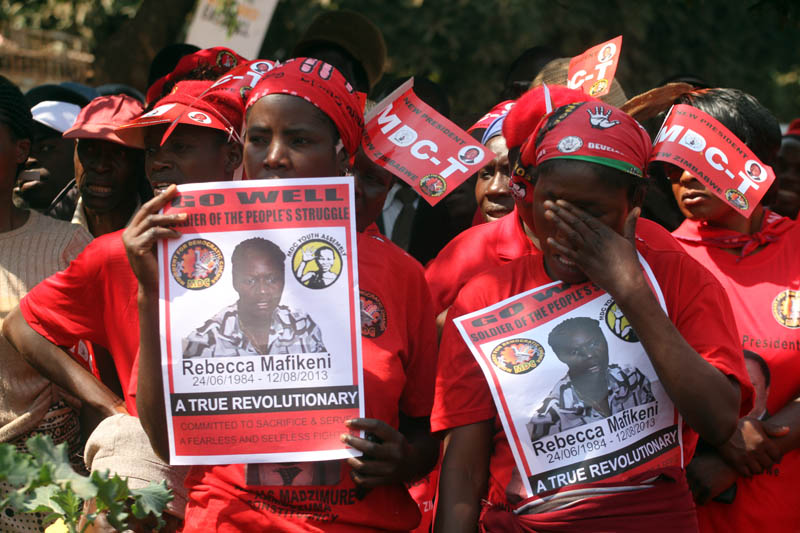
At a recent gathering in northern Virginia, a local activist lawyer argued, “Activism bears fruit, and organizing bears fruit, and we do win every once in a while.” While he was addressing immigrant activists and their supporters, his words ring true around the world. Ask the women of WOZA, Women of Zimbabwe Arise! Yesterday, they too won a landmark victory in the Zimbabwe Supreme Court, and it too is a lesson for everyone.
The case is Jennifer Williams, Magodonga Mahlangu, Celina Madukani and Clara Manjengwa v Co-Ministers of Home Affairs, Commissioner General of Police Attorney, Attorney General of Zimbabwe. But it’s much more than that. It’s four women, attorneys from the Zimbabwe Lawyers for Human Rights, women of WOZA, and women in struggle across Zimbabwe rising up in favor of women’s rights, human rights, Constitutional protections, and in so doing affirming, consolidating and intensifying women’s autonomy and power.
On April 15, 2010, the four women were arrested at a WOZA demonstration. They were taken to the Harare Central Remand Prison, where they spent five miserable days, “five days of hell.” The place was disgusting, and the treatment was abusive, for everyone, not just for WOZA members or political prisoners, although they received `special treatment’ as well. There was no clean water or toilets. Women were forced to remove their underwear. The place was filthy.
So, WOZA protested the conditions and sued.
Four years later, the Supreme Court of Zimbabwe found that WOZA members’ Constitutional rights were violated. The Court found as well that in those instances where WOZA members were targeted for `special treatment’, more of their Constitutional rights were violated. The Court instructed the police to ensure that they would provide clean water, working toilets, a clean mattress for each prisoner, adequate blankets, and that “women detained in police custody shall be allowed to keep their undergarments, including brassieres, and to wear suitable footwear.”
WOZA leaders, WOZA members, their lawyers, and women in struggle across Zimbabwe won a major victory this week. They said State agents cannot act with impunity. For the State, there is no place to hide. WOZA acknowledges the victory and says the time for celebration is not yet at hand: “Whilst WOZA members morale is boosted, members will celebrate when these conditions are a lived reality.”
Women across Zimbabwe, across the world, are organizing for the days when we all can celebrate. But for today, let’s applaud the work of Jennifer Williams, Magodonga Mahlangu, Celina Madukani, Clara Manjengwa, and all the women of WOZA. Activism bears fruit, organizing bears fruit, and we do win every once in a while. Woza! Arise!
(Photo Credit: WOZA Zimbabwe / Kubatana)
